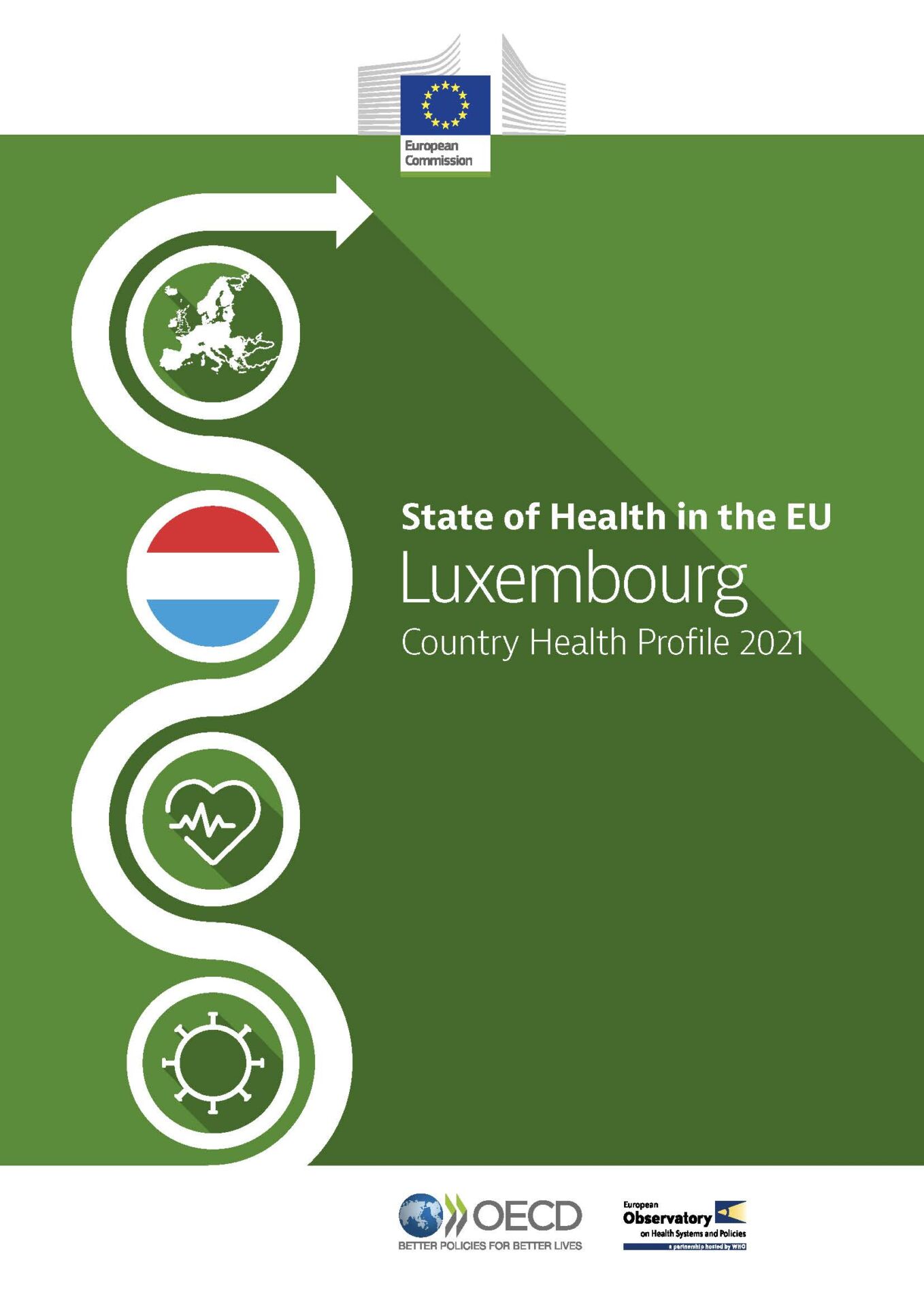Luxembourg has seen a continuous increase in life expectancy up to 2019, but there was a significant fall in 2020 because of deaths due to Covid-19. Behavioural risk factors contribute to more than one third of all deaths, with high alcohol consumption and growing obesity rates of particular concern.
Luxembourg’s population enjoys good access to health care, with a broad benefits package and low out-of-pocket payments.
Luxembourg reacted rapidly to the Covid-19 pandemic with implementation of a large-scale testing strategy, teleconsultations, a national reserve of health professionals and a reorganisation of primary care.
Luxembourg’s health status
Life expectancy at birth in Luxembourg increased by nearly two years between 2010 and 2019. Although it then fell by nearly one year in 2020 during the Covid-19 pandemic, it is still above the EU-wide average. Despite reductions in ischaemic health disease and stroke rates, they remain the leading causes of death, along with lung cancer.
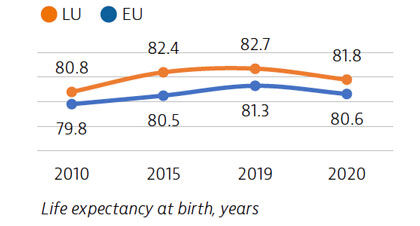
Risk factors
Behavioural risk factors – especially poor nutrition, smoking, physical inactivity and alcohol consumption – are major drivers of morbidity and mortality in Luxembourg. One in three adults report binge drinking behaviour, which is the third highest rate in the EU. Overweight and obesity levels and physical inactivity among 15-year-olds are above the EU average. On a more positive note, smoking levels have declined since 2001 for both adults and adolescents.
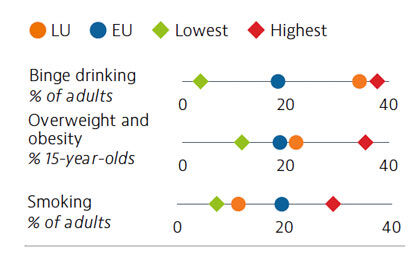
Luxembourg’s health system
In 2019, Luxembourg spent €3,742 per capita on health (adjusted for purchasing power parity), which is relatively high compared to the EU average of €3,523. The public share of total health spending (85%) was also above the EU average. In 2020, public spending on health increased sharply in response to the Covid-19 pandemic.
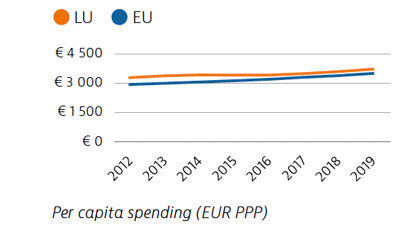
Effectiveness
Preventable mortality is lower than the EU average, reflecting the effectiveness of prevention policies. Treatable causes of mortality are also low, indicating that the health system provides effective primary and acute care for potentially fatal conditions.
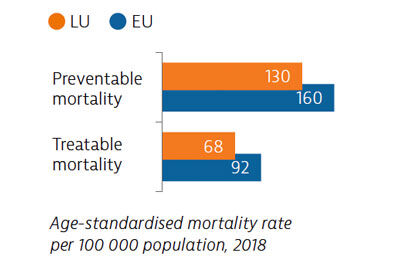
Accessibility
Coverage of health services in Luxembourg is generally good, and unmet needs for care are among the lowest in the EU. However, during the first 12 months of the Covid-19 pandemic, one in five people reported forgoing medical care – slightly lower than the EU average. Growing use of teleconsultations helped to maintain access to care during the various waves of the pandemic.
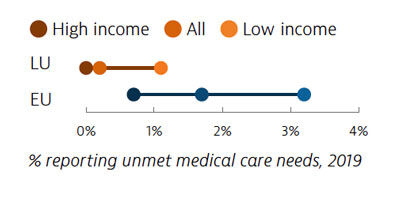
Resilience
Luxembourg responded rapidly to the pandemic, and set up various measures such as largescale testing and effective contact tracing. The vaccination campaign was rolled out in six phases. As of the end of August 2021, 56% of the population had received two doses of Covid-19 vaccine (or equivalent).
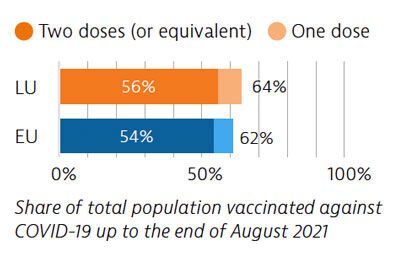
OECD/European Observatory on Health Systems and Policies (2021), Luxembourg: Country Health Profile 2021, State of Health in the EU, OECD Publishing, Paris/European Observatory on Health Systems and Policies, Brussels.









